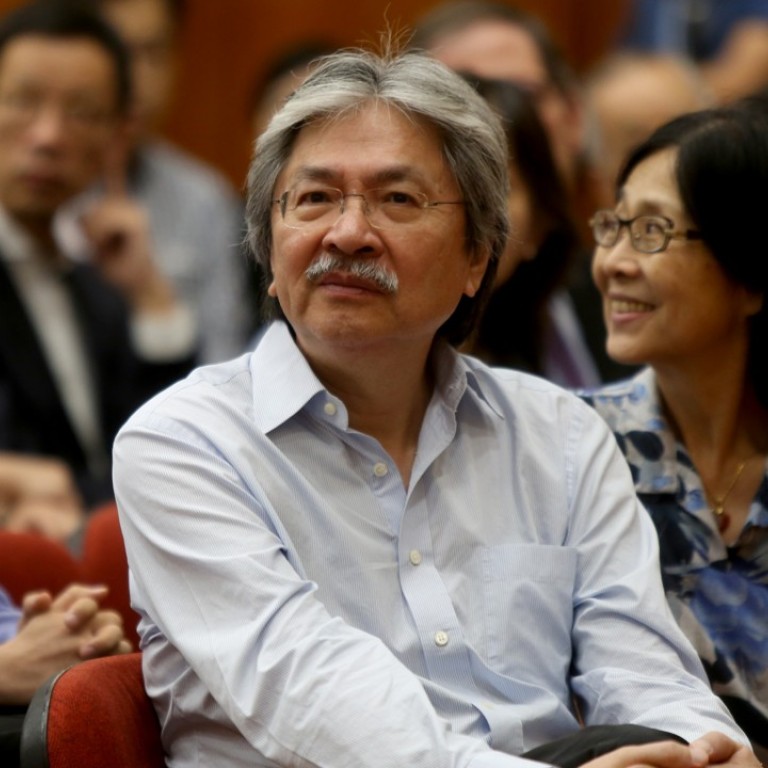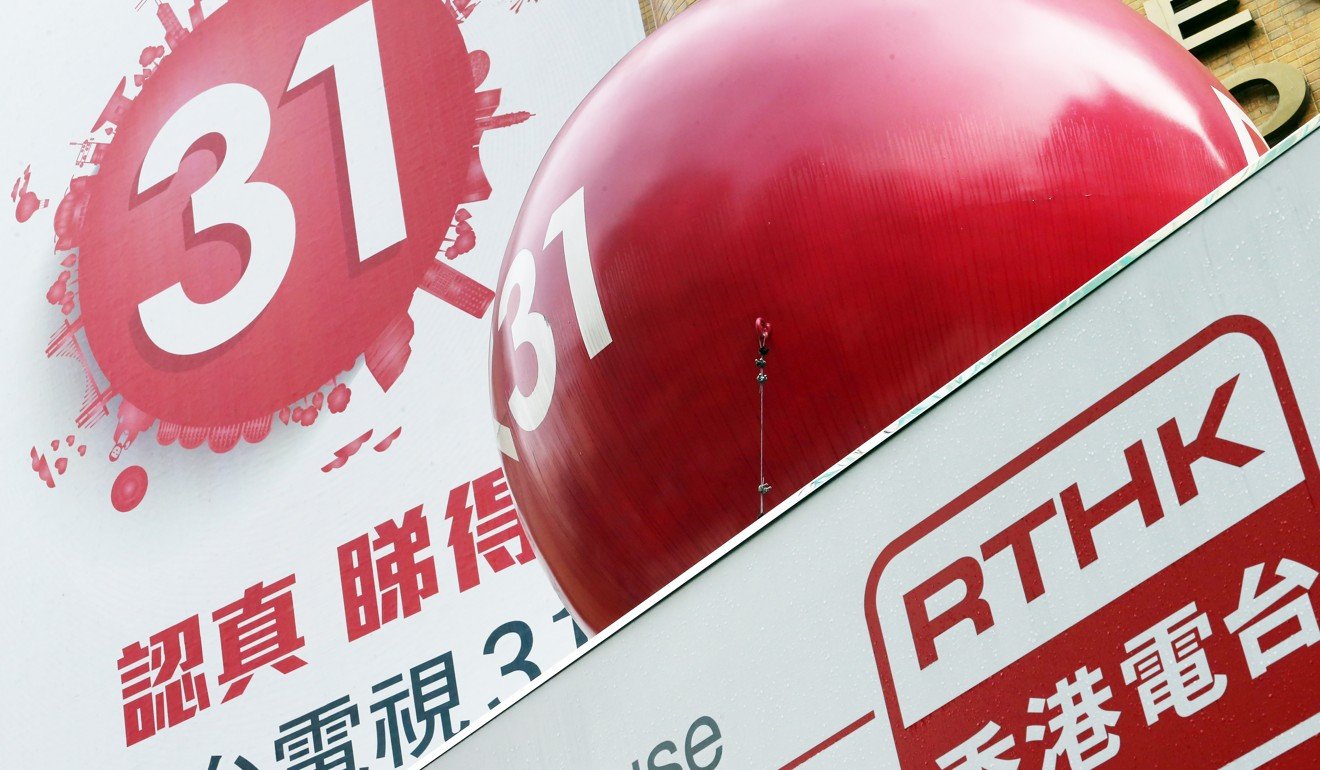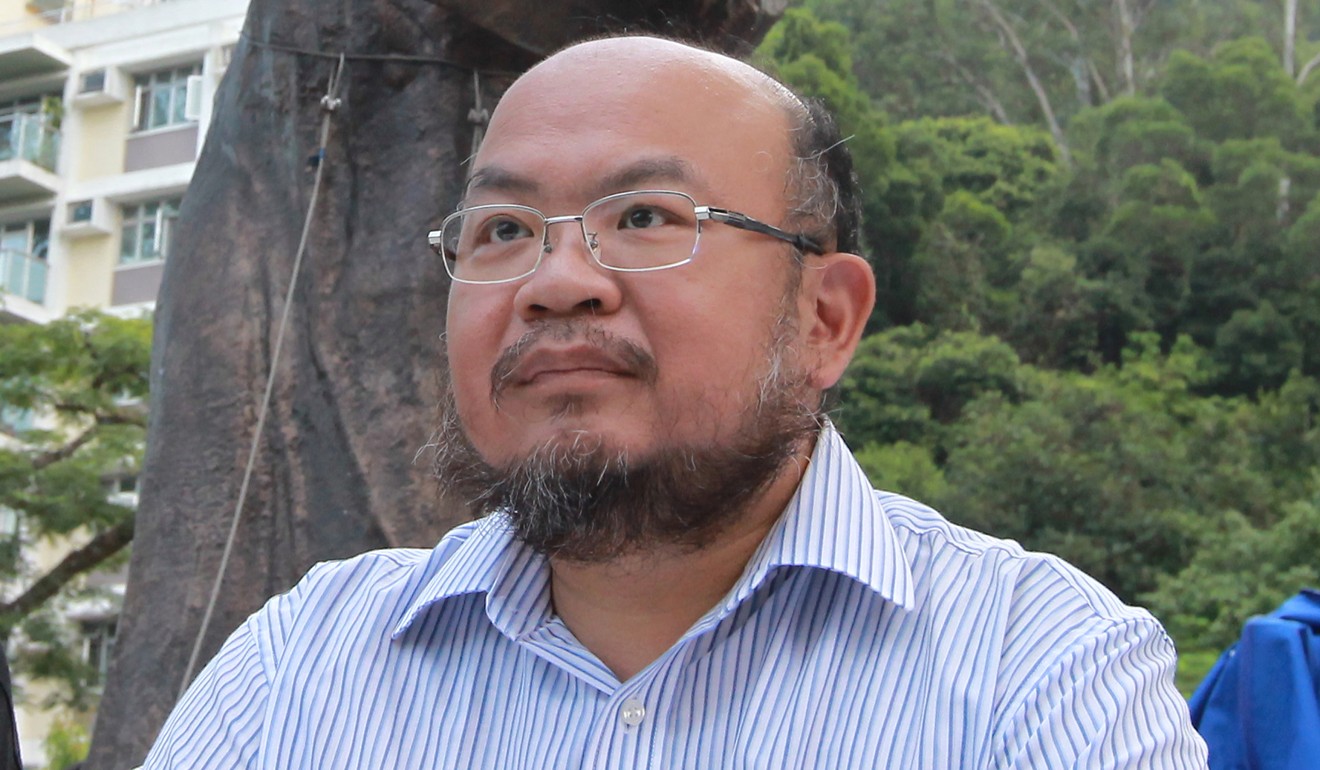
Clarify guidelines for former office holders, Hong Kong government told in wake of John Tsang probe
Lawmakers and analysts see no conflict of interest in Tsang’s unpaid radio and TV roles, and say government could have handled matter with more sensitivity
They urged the government to make these regulations clearer after Tsang last week accused public broadcaster RTHK of suspending the promotion of a series hosted by him, because he did not inform a government advisory committee beforehand.
Tsang claimed he did not need to, as he took part in the 10-episode Hong Kong Stories as a form of social service and was neither paid nor employed.
On Sunday, RTHK’s director of broadcasting Leung Ka-wing said the programme hosted by Tsang would air as scheduled in mid-November, with the show promoted one to two weeks before then.
Leung said he was not under any pressure to kill the programme but had received an email from a government official saying Tsang had not declared his involvement in the show.
The saga has exposed the ambiguities in the existing declaration guidelines for former office holders and raised questions on whether the government could have handled the matter with more political sensitivity.
A guidance note on the chief executive’s website says former politically appointed officials must get the government’s agreement before taking up any employment or appointment to a role after leaving office. However, the restriction is not meant to prevent them from working and the government can also sound out the advisory committee on such matters as well.

The director and chief executive of the Hong Kong Policy Research Institute, Andrew Fung Ho-keung, called on the government to define “employment” as specified in the guidance note.
“What does ‘any employment’ mean? It is arguable. An unpaid job or being a guest host is also ‘employment’,” Fung said. “The rules are not clear. The government should make it clear in the wake of this saga.”
Democratic Party lawmaker Lam Cheuk-ting agreed clearer guidelines were necessary.
“Tsang did not ask for advice probably because he thought [his participation in the show] at the public broadcaster was not employment and would not trigger any conflict of interest nor negative public perception,” Lam said.
The government should make it “crystal clear” if former office holders need to declare their unpaid work for a for-profit entity but not pro bono work for charitable organisations, Lam added.
Joseph Wong Wing-ping, the former secretary for the civil service, echoed the need to differentiate the two kinds of non-profit work as he said getting no pay did not guarantee the task itself would spark no public concerns.

Wong said it was totally reasonable for Tsang not to seek advice for his role in Hong Kong Stories – which was produced by the city’s broadcaster, a non-profit making government branch.
He argued the government might have been “overreacting” in approaching RTHK, but questioned why it did not do the same with private broadcaster Commercial Radio, where Tsang is set to be a guest host.
Political analyst Ivan Choy Chi-keung from Chinese University argued that this contrasting approach had given rise to a “public perception that the government is putting pressure on the public broadcaster”.
Choy said he saw no conflict of interest in what Tsang was doing and it was too tedious for former ministers to declare their unpaid work, as they did not get secretarial support like former chief executives.
The guidance note on post-office employment for former chief executives is more specific than the one for political appointees, with guidelines on what they can take on in the first three years after leaving office.
After three years, they can accept appointments without seeking advice from the advisory committee as long as these are related to government, charitable, academic or non-profit work.
On Monday, a government source said the administration currently had no plans to amend the guidance note, as it was “an honour system that [had] worked effectively for years”.

